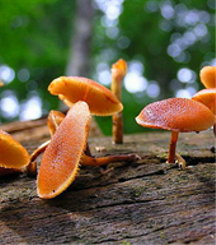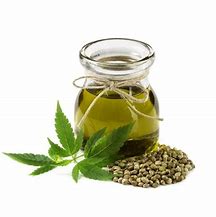Home
What Are Carrier Oils?

Carrier oil, also known as
base oil or vegetable oil,
is used to dilute essential
oils and absolutes before
they are applied to the
skin in massage and
aromatherapy. They
are so named
because they carry
the essential oil onto the skin.
Aroma Of Carrier Oils
The aroma, fragrance or
smell of carrier oils differ
from oil to oil. Please
check our reference
articles on each carrier for
the requested information.
There are often numerous
articles on each individual oil.
Each author and article provides
varied depts. of information.
Processing Method

True carrier oils are
generally cold-pressed
or macerated
vegetable oils taken from,
amongst others:
VISCOSITY

There is a range of different carrier oils, each with a various therapeutic properties. Choosing an oil will depend on the area being massaged, the presenting conditions and the clients sensitivity and requirements. For massage, viscosity is a major consideration;
for example, grapeseed oil is typically very thin, while olive oil is much thicker. Sunflower, sweet almond and grapeseed oils have viscosities midway between these extremes. Carrier oils can be easily blended to combine their properties of viscosity, acceptability, lubrication, absorption, aroma and so forth.
Read more
Nutrients




Food provides a range of different nutrients. Some nutrients provide energy, while others are essential for growth and maintenance of the body.
Infused Oils
08/08/2016 Infused oils are a combination of a carrier oil and plant material and they can be either commercially or domestically prepared. A base oil, often sunflower, is placed in an airtight container with the appropriate plant material for a time. Calendula and carrot oils are produced in this way.09/14/2016 Sources passionately disagree on the suitability of mineral oil as a carrier oil. In the United States, food grade mineral oil is highly refined and purified to meet the stringent requirements of the FDA. Mineral Oil marked as "USP" also meets the standards of the US Pharmacopeia.
Articles-Most Read
- Home
- Contact Us
- Coconut Oil-2
- Absorption Ratings for Carrier Oils
- Cold Pressing Method
- What are Essential Fatty Acids
- Cherry Kernel Oil
- Fixed Oils and Skin Penetration
- Hempseed Oil
- Almond Oil
- Cocoa butter
- Camelina Oil
- Coconut Oil
- Antibacterial Effects Of Carrier Oil
- Lime Blossom Oil (macerated)
- Carrot Oil, Wild Carrot Oil (macerated)
- Apricot Kernel Oil
- Kukui Nut Oil
- Jojoba Wax
- Pumkin Seed Oil - Cucurbita maxima, C. pepo
- Passion Flower OIl (Macerated)
- Hydrocotyle Oil (macerated)
- Palm Kernel Oil
- Rapeseed Oil - Carrier Oil
- Nutrients
Who's On Line
We have 113 guests and no members online
Articles-Latest
- How to Make Homemade Olive Oil: A Step-by-Step Guide
- 20 Evidence-Based Aloe Vera Oil Benefits For Skin, Hair & Health
- Peanut oil - Cold pressed - Are There Health Benefits? How To Make
- What Are the Health Benefits of Black Seed Oil?
- Comfrey oil Infused
- Chamomile Flowers Infused Oil
- Calendula Flowers Infused Oil
- Arnica Flowers Infused Oil
- How To Make Herb-Infused Oils
- DIY avocado oil for healthy skin
- How To Make Coconut Oil
- 8 Benefits of Mustard Oil, Plus How to Use It
- SHOREA STENOPTERA SEED BUTTER
- Shea Butter- 7 Amazing Benefits Of Shea Butter
- Monoi Oil For Hair & Skin
- Mango Seed Oil
- Cohune Oil Is The Next Big Thing
- Brazil Nut OIl
- 7 Impressive Benefits Of Allspice
- Camelina Oil Benefits, Uses, and Side Effects



